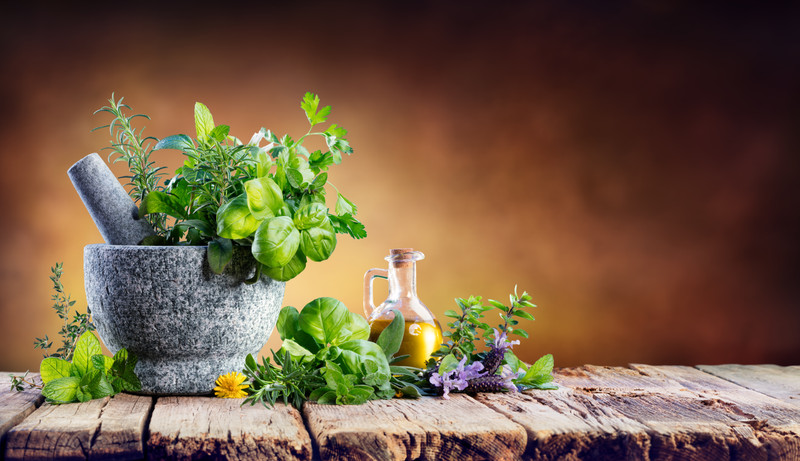Welcome to the third and final part of our three-part series on herbal supplements that we believe deserve your rapt attention as potential healthful additions to your stock of vitamins and supplements. We are not necessarily saying you need to add all of these as you might never have a need or inclination to use all of them, but maybe there are one or two worth keeping around for possible future use. Check out our descriptions below for yourself.
One of the things that makes most, if not all, herbal supplements appealing to people (as well as medical practitioners) seeking effective natural remedies is that these products are all plant-sourced, an attribute that makes them organic and healthy natural treatments. Many of these also have centuries of anecdotal use by traditional and holistic medical experts. Most likely they have produced healthy results time and again who knows how many millions of times. If you want an endorsement of any of these, well, there you go.
The Remedial Value of Active Ingredients in Herbal Supplements
We will concede that some prescription medications also use plant-sourced active ingredients, but those that do typically are based on one ingredient and not the entire plant. Practitioners of herbal medicine tend to favor using multiple plants or even the whole plant in formulating herbal supplements. Their reasoning is grounded (pun intended) in the belief that an active ingredient loses its remedial strength or even becomes less safe for us when isolated from the rest of the plant during manufacture.
Just so you know, the 10 herbal supplements previously featured in this series, in alphabetical order, are ashwagandha, astragalus, basil, black cohosh, cayenne, cinnamon, echinacea, feverfew, garlic, and ginger.
Yet 5 MORE Herbal Supplements to Consider Keeping Around
Following are the last five of the herbal supplements we are featuring for your healthy-living edification:
Gingko Biloba. This is at the top of the list of “go-to” supplements for enhancing memory and cognitive function, not just for the elderly but for anyone experiencing early onset of those kinds of issues. This doesn’t mean if you misplace your wallet or happen to forget where you parked your car at Costco or Walmart that it’s time to load up on gingko biloba. In such a circumstance, a consultation with your personal physician is definitely in order.The two major active ingredients in gingko biloba leaves are flavonoids and terpene trilactones. These work in tandem to bolster and safeguard mitochondrial function. Gingko biloba is not only used for treating cognitive dysfunction in dementia patients, but it has also demonstrated efficacy as supportive therapy for chronic schizophrenia patients.
Oregano. Here’s an herb with a minty taste and aroma that works well at mealtime, dressing up almost any dish when sprinkled on almost any edible imaginable ranging from tomatoes to potatoes, regardless of pronunciation. As an herbal supplement, oregano exhibits another pleasant effect by its ability to help thwart norovirus, a contagious stomach bug that can ruin any sufferer’s day (and night). Credit that viral defense to the compound carvacrol, which is found in the leaves of oregano.
Parsley. Abundantly found in the Mediterranean region, parsley is yet another culinary flavoring that doubles in supplement form as a handy treatment, in its case working to reduce high blood pressure and tamping down allergy symptoms. It does this thanks to its ample provision of antioxidants, carotenoids, and other helpful vitamins at work in regulating a body’s health and bolstering its immune system.
Saw Palmetto. Now here’s something you have probably never heard about before: a supplement that for centuries has been used by Native Americans to address genitourinary symptoms (relating to the genital and urinary organs), alleviating mucous membranes that are inflamed, boosting testicular function, and increasing breast size. How’s that for variety and usefulness? A more contemporary use of saw palmetto is to treat prostate health in men diagnosed with benign prostatic hyperplasia (BPH).
Turmeric. Some herbal supplements stand out for their multifaceted effects beneficial to a person’s health. Turmeric fits like a glove into that category, thanks mostly to its chief active ingredient of curcumin. Studies have shown turmeric’s incredible versatility as an anti-inflammatory, antioxidant, antibacterial, antibacterial, and antiparasitic. How’s that for resourcefulness! Its chain-breaking antioxidant and anti-inflammatory properties work to boost a body’s oxidative stress, which translates to hunting down harmful toxic free radicals lurking in your body. And if you are concerned about the possibility of cardiovascular disease? Turmeric can be your best friend.
That completes our three-part series featuring a total of 15 herbal supplements, all of which can work wonders to improve and/or maintain good health. As always, be sure to consult with your primary-care physician before adding any of these to your daily regimen, whether you are aiming for short-term or longer-term usage. Note: Some herbal ingredients will likely be found combined with other ingredients in some supplements.

